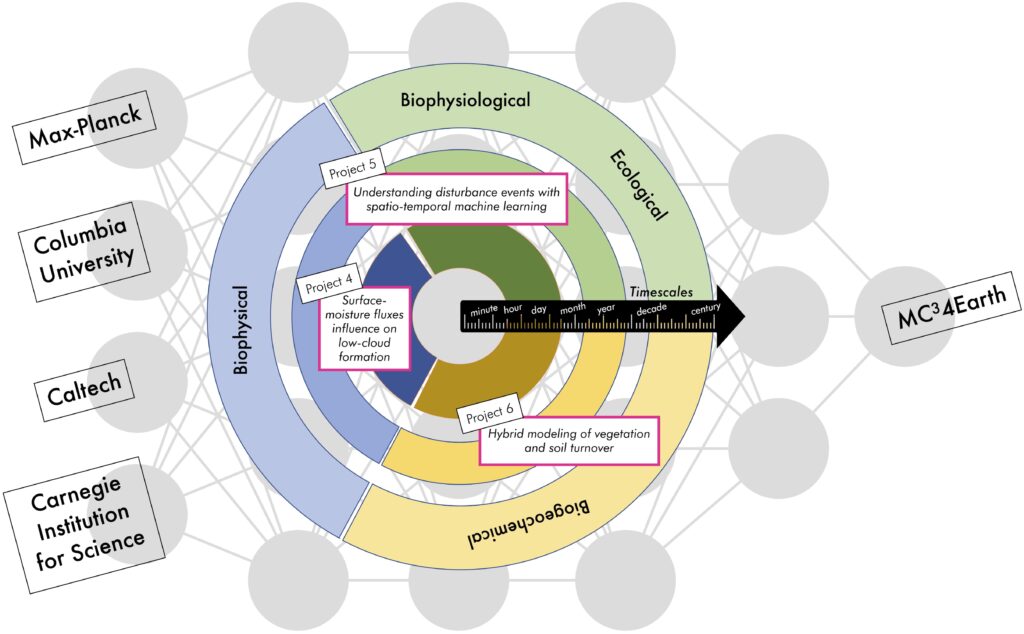
The research of the MC3 4 Earth Center addresses fundamental questions of land-surface/climate interactions from local to global scales and from sub-daily to centennial time-scales.
Background
The vast complexity of the Earth system requires integrating physical, chemical, ecological and human processes in solid, aqueous and gaseous phases across 17 orders of magnitude in space. No single institute can sufficiently address all aspects and develop an integrated picture alone. Moreover, there often has been a divide between theory and model-driven science on the one hand, and observation and data-driven science on the other hand, as well as between more physically and more biologically oriented Earth system disciplines. The complementary expertise of all partner institutions enables therefore a unique approach, which will set new standards in Earth system modeling and analysis and in the training of the next generation of scientists.

Synergetic Goals


Research Topics
Our research addresses fundamental questions on land-surface/climate interactions from local to global scales and from sub-daily to centennial time-scales. Processes we study will link biophysiological/ecological processes with biophysical and biogeochemical mechanisms across time-scales and encompass uptake and release of climate relevant trace gasses and particles by ecosystems (e.g., CO2, CH4, nitrous oxides and other reactive nitrogen, aerosols), eco-hydrological dynamics, soil and vegetation carbon turnover and disturbance dynamics introduced by episodic disturbances such as fire, biotic agents, or climate extremes.

Causal Inference and Modeling
Methods for causal inference from observation are key for a better understanding of the Earth system, because interventions and experiments across the whole Earth system are not feasible. Yet, for subsystems, e.g. ecosystems, experiments are possible, allowing validation of causal inference, by comparing modeled with experimentally observed intervention effects. A challenge for causal inference with Earth system science are the manifold feedback loops which preclude the “classical” modeling with directed acyclic graphs (DAGs), so that strategies have to be extended.

Spatio-Temporal Modeling

Dynamic System Identification
This encompasses an important wide field essentially bringing together theory and system modeling with data science and machine learning, including inverse modeling, data assimilation, gradient free optimization, emulation, hybrid modeling, Bayesian uncertainty quantification. Major challenges include but are not restricted to unbalanced observation (sparse/rich), measurement uncertainties, curse of dimensionality, and equifinality of models. Integrating multi-modal observations and linking mechanistic modeling and machine learning into hybrid approaches appear to be promising avenues, yet still to be better founded from a learning theoretical perspective.
Modelling of yearly latent heat flux
Modelling of yearly GPP
Modelling of yearly NEE
Modelling of yearly sensible heat N
Working groups
There are currently four active working groups at the Center.
- The Fate of the Anthropogenic Carbon
- CO₂ Fertilization and Future Climate Projections
- Fire Albedo Impact in Coupled Land-Atmosphere Simulations
- Upscaling the Momentum Flux from Eddy-Covariance





